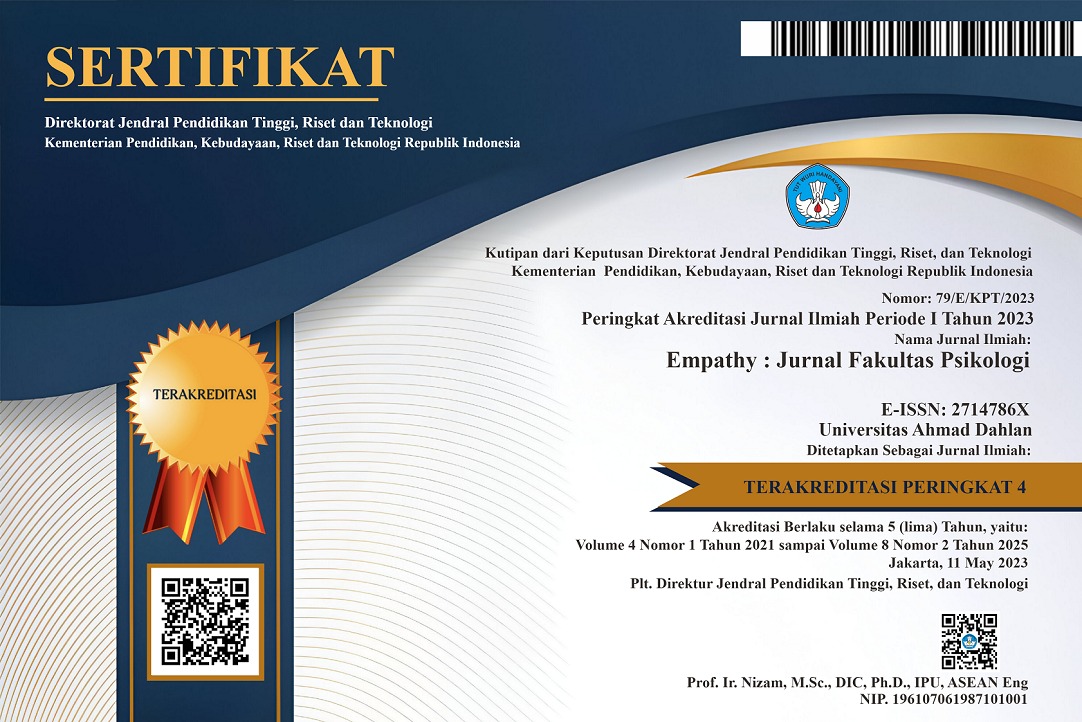Gratitude Feelings of Involuntary Childless Couples
DOI:
https://doi.org/10.12928/empathy.v6i1.24621Keywords:
Gratitude, Involuntary Childless CouplesAbstract
Kebersyukuran pada Pasangan Involuntary Childless
Couples who want children but cannot have them without intending to do so are said to be involuntarily childless. For the couple, it is not simple. Without a child, a husband and wife who are already married but are experiencing issues or emotions that force them to be childless can understand what gratitude means. Gratitude is one way that involuntarily childless couples can continue to support one another and remain hopeful about having children. This study aims to explore the meaning of gratitude in involuntary childless couples. This study employs a qualitative methodology and phenomenology. Semi-structured interviews, or interviews where the researcher has prepared the questions in advance using the idea of gratitude, are the data collection method. Three married couples with average marriage ages of 13 years, 12 years, and seven years, participated in this study. The study's findings demonstrate that Involuntarily childless couples are grateful for the help they receive from others and feel fortunate to have such support. Additionally, a childless couple always views their actions positively to feel grateful for Allah's blessings.
Downloads
Published
Issue
Section
License
Authors who publish with Empathy: Jurnal Fakultas Psikologi agree to the following terms:
- Authors retain copyright and grant the journal right of first publication with the work simultaneously licensed under a Creative Commons Attribution License (CC BY-SA 4.0) that allows others to share the work with an acknowledgment of the work's authorship and initial publication in this journal.
- Authors are able to enter into separate, additional contractual arrangements for the non-exclusive distribution of the journal's published version of the work (e.g., post it to an institutional repository or publish it in a book), with an acknowledgment of its initial publication in this journal.
- Authors are permitted and encouraged to post their work online (e.g., in institutional repositories or on their website) prior to and during the submission process, as it can lead to productive exchanges, as well as earlier and greater citation of published work.

This work is licensed under a Creative Commons Attribution-ShareAlike 4.0 International License.



